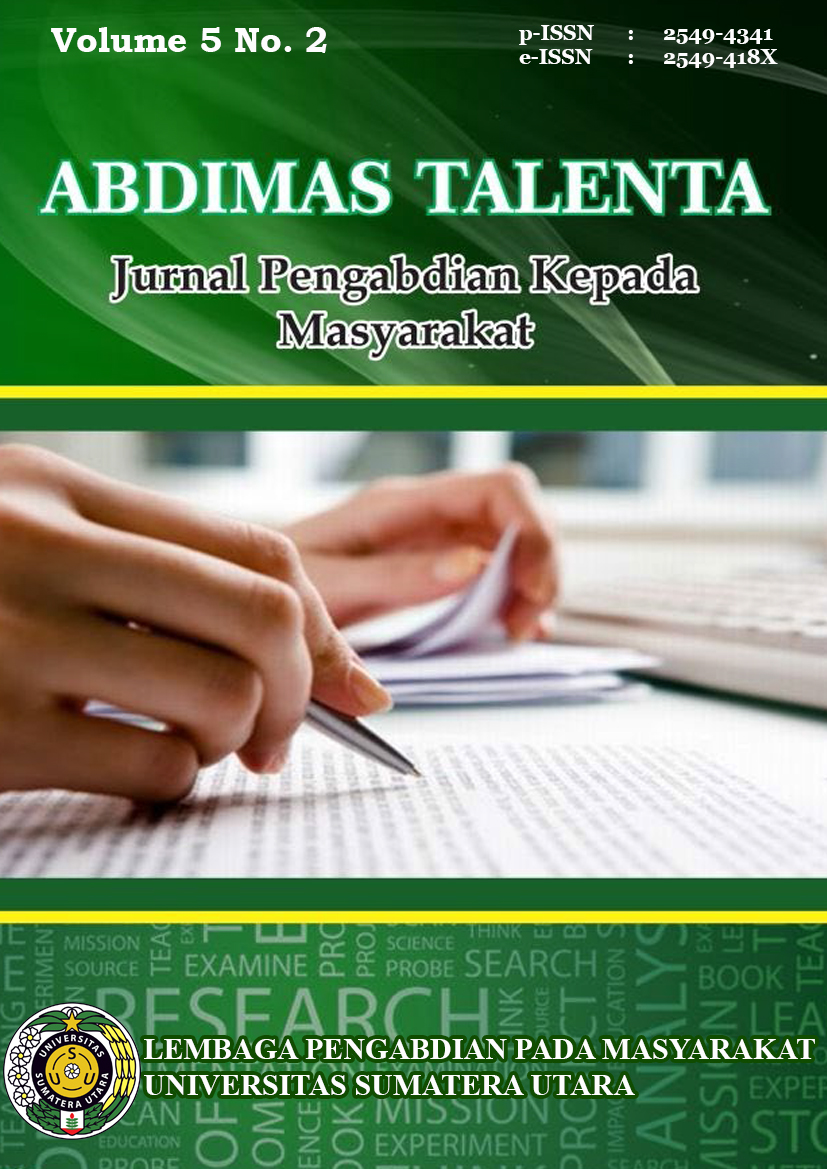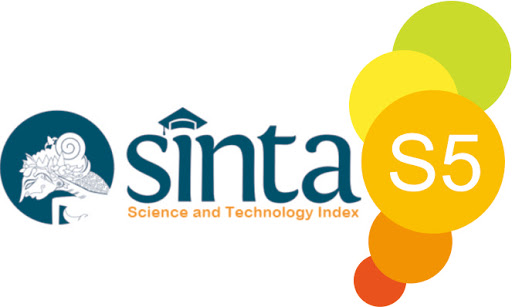Organic’s living pharmacy plants cultivating in Dorema Nusantara orphanage as a repressive step in inhibiting the expansion of Coronavirus transmission in North Sumatera Province
DOI:
https://doi.org/10.32734/abdimastalenta.v5i2.5075Keywords:
Pandemic, Covid-19, Budidaya Organik, Dorema Nusantara, Tanaman Apotik HidupAbstract
The Covid-19 pandemic has had a major impact on human life around the world in various aspects of life, including Indonesia. Health and economy are two sectors that gave a greatest impact on societies’ life. As the result, agricultural activity become returning to be excellent considering while many other secondary and tertiary sectors are paralyzed by the presence of this virus. One of the promising agricultural commodities among all for planting at this time is spices such as ginger and turmeric because of their advantage as immunity boosters. Available in quite comprehensive space of agricultural land in Indonesia, North Sumatera is still potential to be planted. Among the various effected communities, Dorema Nusantara orphanage that located in Medan Helvetia district, Deli Serdang Regency was choosen as location for this community service activity with considering that the respondents was the one who received a heavily affect by this pandemic. The activity used organic cultivation method because of the abundant availability of raw materials for litter and household waste around this place. Respondents were very enthusiastic about participating in this activity. They also hope that this activity can take place in a sustainable manner.
Downloads
Downloads
Published
Issue
Section
License
Copyright (c) 2020 ABDIMAS TALENTA: Jurnal Pengabdian Kepada Masyarakat

This work is licensed under a Creative Commons Attribution-ShareAlike 4.0 International License.
The Authors submitting a manuscript do so on the understanding that if accepted for publication, copyright of the article shall be assigned to Jurnal Abdimas TALENTA as well as TALENTA Publisher Universitas Sumatera Utara as the publisher of the journal.
Copyright encompasses exclusive rights to reproduce and deliver the article in all forms and media. The reproduction of any part of this journal, its storage in databases and its transmission by any form or media, will be allowed only with written permission from Jurnal Abdimas TALENTA.
The Copyright Transfer Form can be downloaded here.
The copyright form should be signed originally and sent to the Editorial Office in the form of original mail or scanned document.












